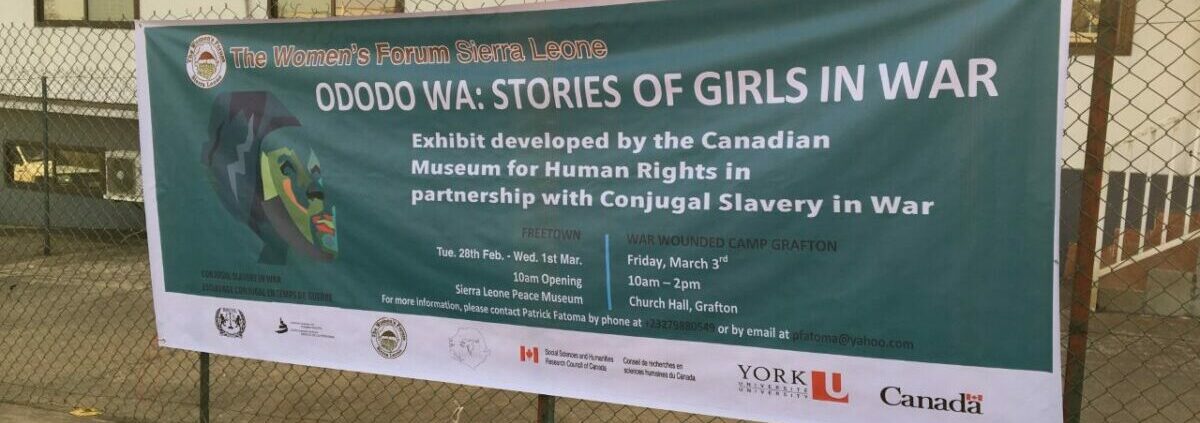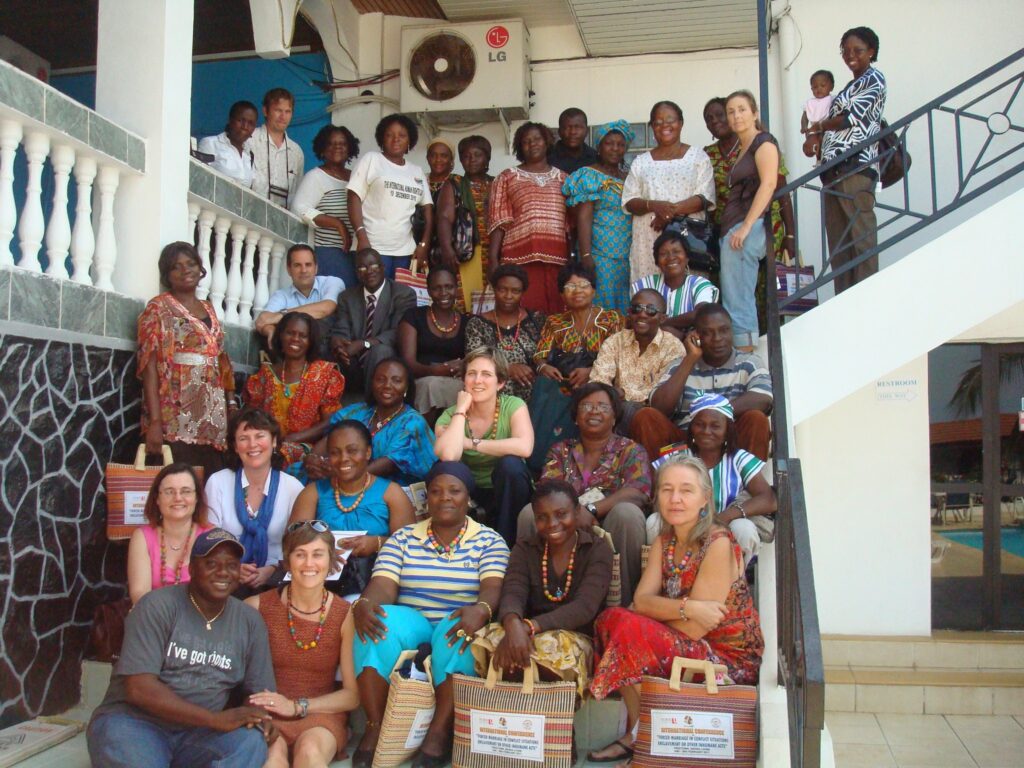
A young woman’s green skirt containing bullet holes is one of several haunting artifacts that comprise Ododo Wa: Stories of Girls in War, an international travelling exhibit that focuses on the lives of Evelyn Amony and Grace Acan.
The two women were abducted as children in the 1990s, forced into marriages, and held captive for years by the Lord’s Resistance Army (LRA), a rebel group in Uganda. Amony was wearing the green skirt the day she was freed from LRA captivity.

Ododo Wa – “our stories” in the Acholi language – features artwork, short films, photographs and Amony and Acan's personal belongings in order to help detail their stories of survival and their paths to freedom.
The pair helped develop the exhibit alongside Isabella Masson, curator at the Canadian Museum for Human Rights, and in partnership with Professor Annie Bunting, York University researcher and the director of a Social Sciences and Humanities Research Council (SSHRC) Partnership Grant project, Conjugal Slavery in War: Partnerships for the study of enslavement, marriage and masculinities.
“It is our hope that the exhibit helps survivors open up about their experiences and helps them find the courage to advocate for their needs,” said Amony, now a human rights advocate in Uganda, and co-founder of the Women’s Advocacy Network, alongside Acan.
The exhibit is one of the outcomes of the SSHRC grant and aims to amplify the experiences of women in war, and the advocacy and work of survivors. It mobilizes what Bunting refers to as “difficult knowledge” by employing creative methods to share these experiences.
“The traveling exhibit has been shared in Uganda, the Democratic Republic of the Congo and now in Sierra Leone, facilitating important conversations about justice and reparations from the perspective of survivors and mobilizing community-based research,” said Bunting, a professor of law and society in the Department of Social Science.
Bunting and the research team, alongside Amony and Acan, flew to Sierra Leone to launch the exhibit at the Sierre Leone Peace Museum in Freetown. It’s a significant trip as the Peace Museum stands on the site of what once was the Special Court of Sierra Leone (SCSL) – the first international court to find abduction for forced marriage in conflict situations to be a crime against humanity.
For Acan, taking the exhibit to Sierra Leone helps continue her and Amony’s advocacy work for justice and reparations.
“Survivors must not be forgotten,” she said. “They need to be supported to heal in a holistic and survivor-centred manner for them to live meaningful and productive lives.”
The exhibit ran in Sierra Leone from Feb. 28 to March 2.
